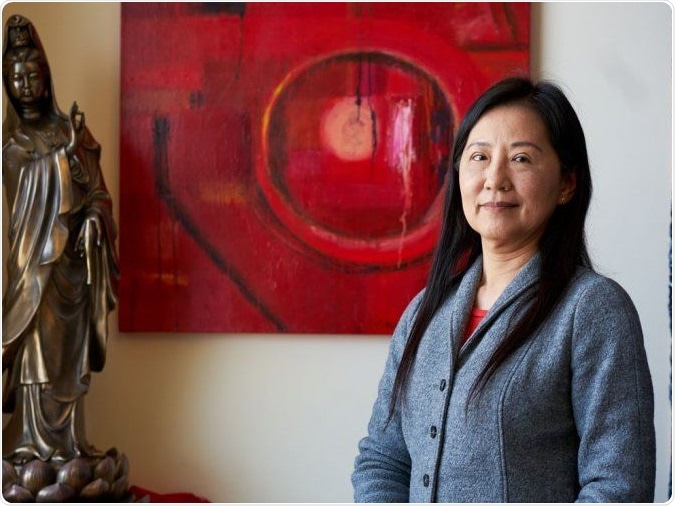Sleep is a crucial part of human health. Piling up a chronic sleep debt by consistently sleeping less than is needed for a fully rested feeling causes a number of illnesses, including heart disease, cancer and autoimmune conditions. However, some people are able to do without as much sleep as the rest of us; in fact, they actually show greater productivity, more optimism and even longer life. Now a research team has identified a mutation in the ADRBI gene that makes this phenomenon possible by promoting the activity of nerve cells that cause wakefulness.
Previously the same team found a mutation in the DEC2 gene in humans that produces the ability to sleep for just 6 hours a night without any discernible negative effects. Another DEC2 mutation was later found. However, these couldn’t possibly account for all the cases of natural short-sleep (NSS) known, so they looked for other mutations.

Image Credit: Gpointstudio / Shutterstock
How was the study done?
Researchers have found that the beta receptors in the brain respond to noradrenaline. These are possibly responsible for waking in a state of alertness, and for rapid eye movement (REM) sleep. The use of beta-blockers can cause insomnia linked to delayed sleep onset and poor maintenance of sleep. The current study focused on a rare mutation found in the beta receptor coding gene called ADRB1, first seen in one family of NSS humans. This is a point mutation involving a change in a single coding amino acid. All members of the family who displayed the NSS trait had the mutation but not the others, who had longer sleep durations. This mutated gene has now been found in over 50 families.
The scientists compared the mutational protein with the wild-type or normal protein and found it was more easily broken down. This resulted in lower levels of the mutant beta receptor in these cells compared to the normal gene, despite the fact that the synthesis was unaffected.
When this was inserted in mice, the same short sleep occurred. Mice with this mutation were active for longer periods during the day, both in light and dark phases. They had about an hour less sleep in 24 hours compared to wild-type mice. Both REM and NREM sleep phases were shortened in the dark phase, mostly NREM sleep. This was mostly due to a drop in the number of sleep episodes, but the duration of each episode remained unchanged. This pattern was strongly similar to that observed in NSS humans.
Further research showed that the brain area called the dorsal pons which regulates many sleep-related activities is rich in ADRB1 receptor-containing cells. The mutant ADRB1 cells are active during wakeful states and inactive during NREM sleep. They are activated just before the brain transitions from NREM to REM sleep, and just before NREM sleep gives way to alert wakefulness.
Using optogenetics, they found next that light stimulation in mice with the ADRB1 mutation during NREM sleep (when these receptors are normally inactive) caused instant wakefulness, but not from REM sleep. No significant effect was found when the light was used in wakeful mice. Thus, these neurons are responsible for producing wakefulness in humans.
Further experiments showed that in mutant mice, the dorsal pons has many more wakefulness-promoting ADRB1-mutated cells than those which promote sleep. These cells are also more excitable than the wild-type cells. The mutation also increases the speed of transmission in the whole circuit containing the mutated neuron, making it more excitable. This mutation is dominant in its effects over the normal gene, so that its presence leads to a wakeful and alert phenotype.
What do we learn?
The study shows that the ADRB1-A187V mutation causes familial natural short sleep via the wakefulness-promoting role of beta-adrenergic receptors in the dorsal pons. This could help unravel more insights into how sleep is regulated, especially via beta-receptor circuits in the brain. As a result, more beta-receptor targeted drug treatments could be developed to treat sleep disorders.
Researcher Ying-Hui Fu says, “Natural short sleepers experience better sleep quality and sleep efficiency. By studying them, we hope to learn what makes for a good night’s sleep, so that all of us can be better sleepers leading happier, healthier lives.”

Ying-Hui Fu, PhD, led the research teams that discovered both short sleep genes.
The paper was published in the journal Neuron on August 28, 2019.
Source:
Journal reference:
A rare mutation of β1-adrenergic receptor affects sleep/wake behaviors. Guangsen Shi, Lijuan Xing, David Wu, Bula J. Bhattacharyya, Christopher R. Jones, Thomas McMahon, S.Y. Christin Chong, Jason A. Chen, Giovanni Coppola, Daniel Geschwind, Andrew Krystal, Louis J. Ptáček, & Ying-Hui Fu. Neuron. August 28, 2019. DOI:https://doi.org/10.1016/j.neuron.2019.07.026. https://www.cell.com/neuron/fulltext/S0896-6273(19)30652-X